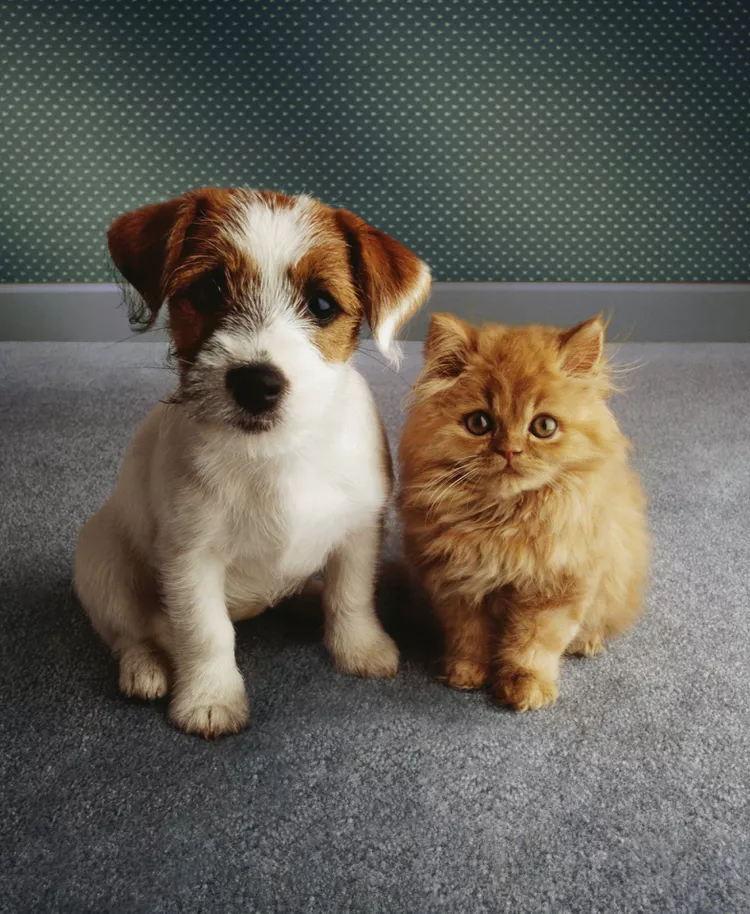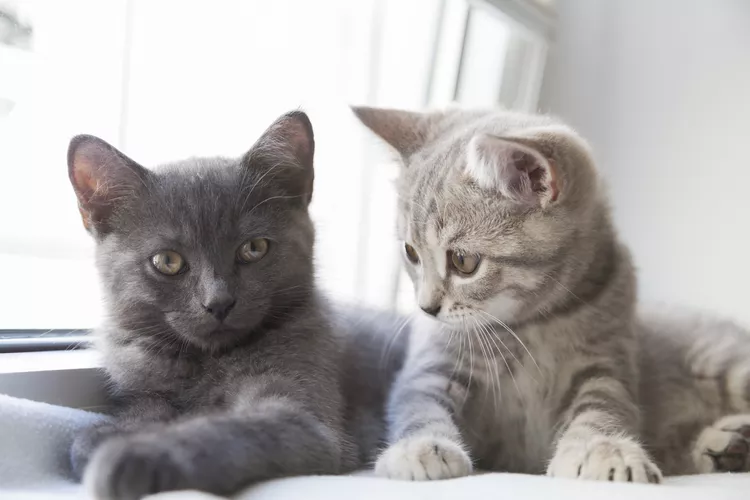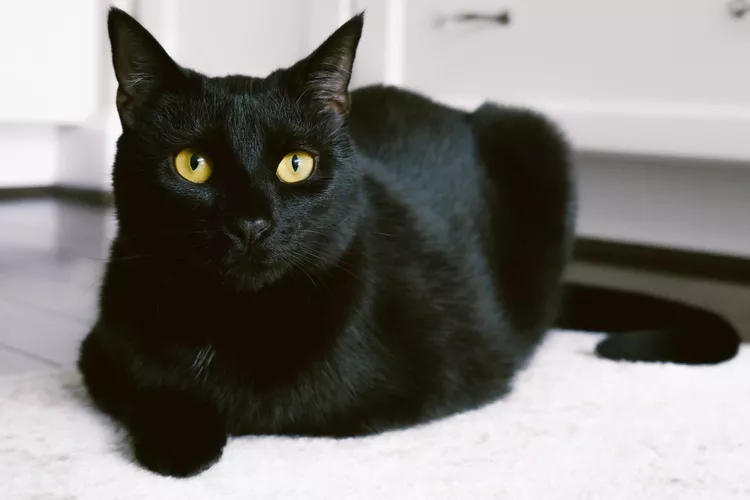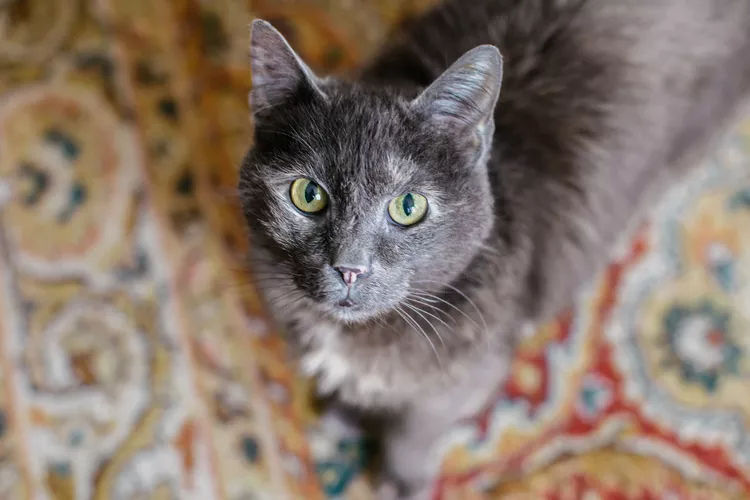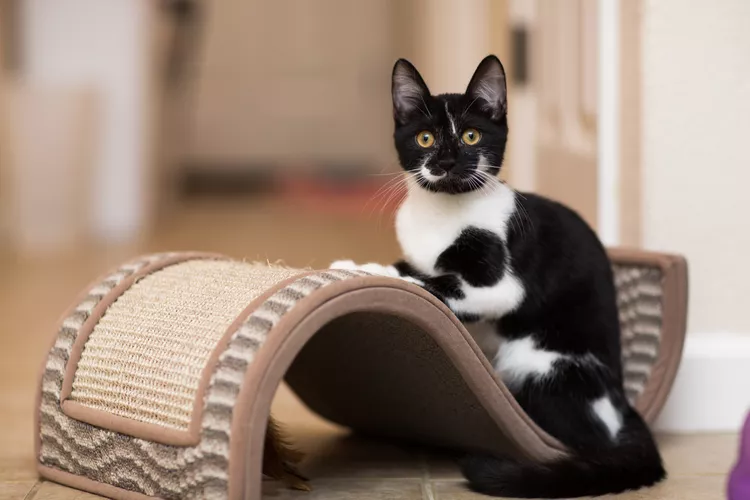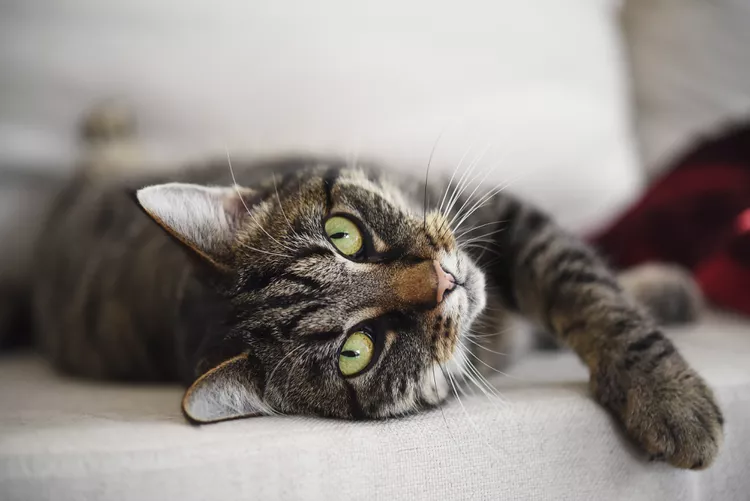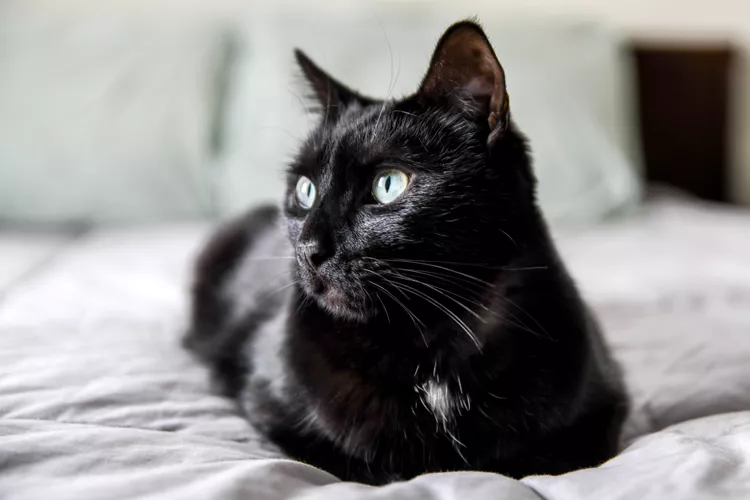
Your cat's age may be a mystery to you if your new feline was adopted or rescued. You might have heard that one year for a cat is equivalent to seven years for a human, but that's not entirely accurate. You can of course generally tell if your new feline is a kitten or an adult just by looking at it, but that still leaves a lot of guesswork. The best way to determine a cat's age is to consult a trusted veterinarian who can determine an approximate age of the cat by examining its teeth, eyes, fur, and overall maturity. Still, be aware that your vet cannot pinpoint an exact age, just provide an educated guess as to how old your cat is.
Here are a few ways vets can determine the age of your cat.
Teeth
A cat's initial baby teeth first emerge between 2 to 4 weeks, making teeth an excellent determination of age for kittens. Their permanent teeth are developing above the baby teeth and by the time the kitten is 3 to 4 months old, the permanent teeth will start to displace the baby teeth (also called deciduous teeth). Typically, all of the adult teeth are in place by 6 months of age, and the growth is no longer useful in determining a cat's age.
In older cats, the amount of staining, or tartar, on a cat's teeth is also an indicator of age. However, with pets' teeth cleaning products readily available, tartar may not be a good indicator depending on the diligence of the cat's caregiver in providing a dental care program. Your veterinarian will also look for wear-and-tear on the teeth; the older the cat, the more its teeth tend to be worn down. However, this is only a very loose guideline for determining feline age. Therefore, while teeth are a good indicator of a cat or kitten's approximate age, they are not foolproof.
Sexual Maturity
Although a cat adopted from an animal rescue or shelter is likely to have been spayed or neutered before you brought it home, an intact cat can provide clues to its age based on its sexual maturity.
Male cats reach sexual maturity as early as 6 months. Signs of puberty include territorial spraying of urine, as well as testicles that are more prominent. You'll see them with a glance at the cat's rear end, where the testicles are positioned below the anus.
Female cats will typically have their first heat (estrus cycle) sometime between the ages of 5 and 9 months, though the length of daylight and weight of the cat also have some effect on the time of the queen's first estrus cycle. A female cat will tell you it is experiencing estrus very visibly and vocally. A female cat is most fertile between the ages of 18 months and 8 years, although it can become impregnated much earlier or later depending on fertility, overall health, and access to intact male cats.
However, many veterinarians now practice early spay and neuter. It not only helps prevent early pregnancies, which are harder both on the mothers and on the kittens, but the surgery itself is said to be easier on the cats at a younger age. This can make determining the age of a cat a bit trickier.
Coat Development
A kitten's fur or hair is baby-fine and soft, but as a cat ages, its coat will thicken and coarsen. It may also change color, becoming darker or lighter in shade. When a cat attains senior status, it may even develop patches of white or gray individual hairs, much as humans do upon aging. While it's not a guarantee of age, the coat helps a vet determine the age of a cat.
Additionally, how well a cat grooms itself can help indicate how old the animal is. Cats are very clean creatures, but an older cat might begin to slack on caring for its coat as it gains weight with age, when dental problems cause the cat's mouth to hurt, or if arthritis make it painful to perform the characteristic twists and turns displayed during feline self-grooming.
Eyes
Healthy kittens and cats in their early adult years have eyes that are very clear and bright, with no evidence of tearing or discharging. Cats in their later years, though, may develop a cloudy appearance of their eyes, including tearing and/or discharge. This doesn't usually happen until the cat is at least 10 years old. Cats beyond the age of 10 often show changes to the iris of their eye, which is the colored part. The iris might develop a wavy edge, or not open and close with exposure to light as much as it did when the cat was younger.




